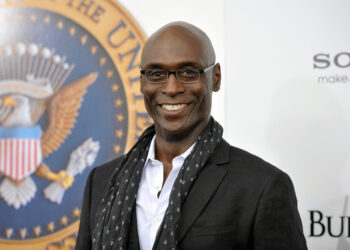WASHINGTON — President Barack Obama delivered an election-year broadside to Republicans: Game on.
The GOP, from Congress to the campaign trail, signaled it’s ready for the fight.
SEE ALSO: President Obama’s 2012 State of the Union Address (Video)
In his third State of the Union address, Obama issued a populist call for income equality that echoed the Occupy Wall Street movement. He challenged GOP lawmakers to work with him or move aside so he could use the power of the presidency to produce results for an electorate uncertain whether he deserves another term.
Facing a deeply divided Congress, Obama appealed for lawmakers to send him legislation on immigration, clean energy and housing, knowing full well the election-year prospects are bleak but aware that polls show that the independent voters who lifted him to the presidency crave bipartisanship.
“I intend to fight obstruction with action,” Obama told a packed chamber and tens of millions of Americans watching in prime time. House Republicans greeted his words with stony silence.
The Democratic president’s vision of an activist government broke sharply with Republican demands for less government intervention to allow free enterprise. The stark differences will be evident in the White House’s dealings with Congress and in the presidential campaign over the next 10 months.
In the Republican response to the president’s address, Indiana Gov. Mitch Daniels, who once considered a White House bid, railed against the “extremism” of an administration that stifles economic growth.
“No feature of the Obama presidency has been sadder than its constant effort to divide us, to curry favor with some Americans by castigating others,” Daniels said, speaking from Indianapolis. “As in previous moments of national danger, we Americans are all in the same boat.”
Vice President Joe Biden said Wednesday the protracted policy fight with Republicans is “not about bad guys and good guys,” but centers on how best to keep the middle class growing in America.
The administration has worked hard to strike deals with congressional Republicans on a wide array of issues, he said, including steps to rein in the mounting federal deficit. But Biden added that time after time in talks he held with congressional figures in both parties, he was told little could be accomplished because of the wall of opposition from 86 conservative House Republicans.
“It’s like the tail is wagging the dog,” the vice president said.
House Majority Leader Eric Cantor, R-Va., called the differences between the parties “stark” and said he thought little could be accomplished on the federal debt until the two sides come to grips with the skyrocketing costs of health care and the Medicare program.
“I don’t think anyone wants to pay higher taxes,” Cantor said. And he said Washington needs to “get out of the mindset” that the country’s problems can be solved with new programs and accept that small business “is the backbone” of the economy.
In his speech, Obama said getting a fair shot for all Americans is “the defining issue of our time.” He described an economy on the rebound from the worst economic crisis since the Great Depression, with more than 3 million jobs created in the last 22 months and U.S. manufacturers hiring. Although unemployment is high at 8.5 percent, home sales and corporate earnings have increased, among other positive economic signs.
Republicans say the president’s policies have undermined the economy.
Obama “had the opportunity and the responsibility to level with the American people, admit that the policies of the past three years have delivered an underwhelming record of economic growth and job creation, and show an interest in changing direction and uniting, not dividing the nation,” said Rep. Tom Price, R-Ga., head of the Republican Policy Committee. “The president failed to meet that responsibility.”
There were brief moments of bipartisanship. Republicans and Democrats sat together, continuing a practice begun last year. The arrival of Rep. Gabrielle Giffords, who survived an assassination attempt, elicited sustained applause and cheering, with chants of “Gabby, Gabby.” Republican Rep. Jeff Flake escorted her into the chamber and Obama greeted her with a hug.
The president received loud applause from both sides when he said: “I’m a Democrat. But I believe what Republican Abraham Lincoln believed: That government should do for people only what they cannot do better by themselves, and no more.”
But all that belied a fierce divide.
Obama ticked off items on a hefty agenda that he wants from Congress – a path to citizenship for children who come to the United States with their undocumented parents if they complete college, tax credits for clean energy, elimination of red tape for Americans refinancing their mortgages, a measure that bans insider trading by lawmakers and a payroll tax cut.
Political reality suggests it was largely wishful thinking on Obama’s part. The payroll tax cut and must-do spending bill are the most likely legislative items to survive the election year.
But Obama’s far-reaching list and the hour-plus speech offered a unique opportunity to contrast his record with congressional Republicans and his top presidential rivals, Mitt Romney and Newt Gingrich.
“Anyone who tells you America is in decline or that our influence has waned, doesn’t know what they’re talking about,” Obama said – a clear response to the White House hopefuls who have pummeled him for months.
In an attack on the nation’s growing income gap, Obama called for a new minimum tax rate of at least 30 percent on anyone making more than $1 million. Many millionaires – including Romney – pay a rate less than that because they get most of their income from investments, which are taxed at a lower rate.
“Now you can call this class warfare all you want,” Obama said. “But asking a billionaire to pay at least as much as his secretary in taxes? Most Americans would call that common sense.”
Obama calls this the “Buffett rule,” named for billionaire Warren Buffett, who has said it’s unfair that his secretary pays a higher tax rate than he does. Emphasizing the point, Buffett’s secretary, Debbie Bosanek, attended the address in first lady Michelle Obama’s box.
Obama made his appeal on the same day that Romney released some of his tax returns, showing he made more than $20 million in a single year and paid around 14 percent in taxes, largely because his wealth came from investments.
In advance of Obama’s speech, Romney said, “Tonight will mark another chapter in the misguided policies of the last three years – and the failed leadership of one man.”
Obama highlighted his national security successes – the raid that killed Osama bin Laden, the diminished strength of al-Qaida and the demise of Moammar Gadhafi. In hailing the men and women of the military, the commander in chief contrasted their cooperation and dedication with the divisions and acrimony in Washington.
“At a time when too many of our institutions have let us down, they exceed all expectations,” Obama said. “They’re not consumed with personal ambition. They don’t obsess over their differences. They focus on the mission at hand. They work together. Imagine what we could accomplish if we followed their example.”
Obama leaves Washington for a three-day tour of five states crucial to his re-election bid. On Wednesday he’ll visit Iowa and Arizona to promote ideas to boost American manufacturing; on Thursday in Nevada and Colorado he’ll discuss energy; and in Michigan on Friday he’ll talk about college affordability, education and training.
He also addresses a conference of House Democrats focused on their own re-election in Cambridge, Md., on Friday.
Polling shows Americans are divided about Obama’s overall job performance but unsatisfied with his handling of the economy.
Biden was interviewed on ABC’s “Good Morning America,” NBC’s “Today” show and “CBS This Morning.” Cantor appeared on CBS and MSNBC.













